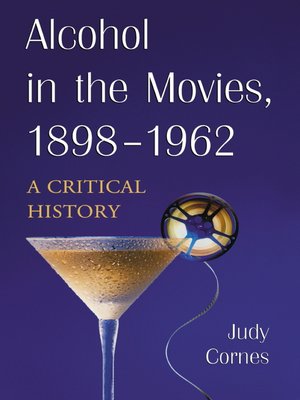
Sign up to save your library
With an OverDrive account, you can save your favorite libraries for at-a-glance information about availability. Find out more about OverDrive accounts.
Find this title in Libby, the library reading app by OverDrive.



Search for a digital library with this title
Title found at these libraries:
| Loading... |
A 1906 film called The Dream of a Rarebit Fiend shows a man drinking and eating voraciously at a restaurant, then going home to bed. In the surreal scenes that follow, furniture disappears, tiny devils poke the man's head with pitchforks, and his bed hurls itself out the window and across the city. But it wasn't commentary on drinking; rather, it was a showcase of early special effects—double exposure photography, panning shots, and montage. Turn-of-the-century films typically treated drinking as a subject for comedy and ridicule, and the comic possibilities translated well into silent movies. As talkies developed and the film industry matured, alcohol's portrayal was reflected in the times: prohibition, the Great Depression, the war years, and as social commentary.
Here is a study of 64 years of alcohol as portrayed in film. The author begins with the appearance in 1898 of what is probably the first commercial: a 30-second film of men in kilts dancing and the words "Scotch Whiskey" appearing in the background. The final film is 1962's Days of Wine and Roses, which addresses alcoholism. The author includes a film from each decade, those with artistic or historical value, those that represent the comedy, drama and musical genres, and well-known pictures such as The Lost Weekend and A Star Is Born. The first three chapters cover 1903 to 1939. The remaining chapters follow not a timeline but the growing complexity of the movies. A recurring motif is the use of the term "white logic," a phrase used by writer Jack London in his 1913 memoir John Barleycorn. It refers to disillusionment with everyday life brought on by and exacerbated by alcohol. An annotated filmography lists the date, source and other relevant information about movies in this study.






